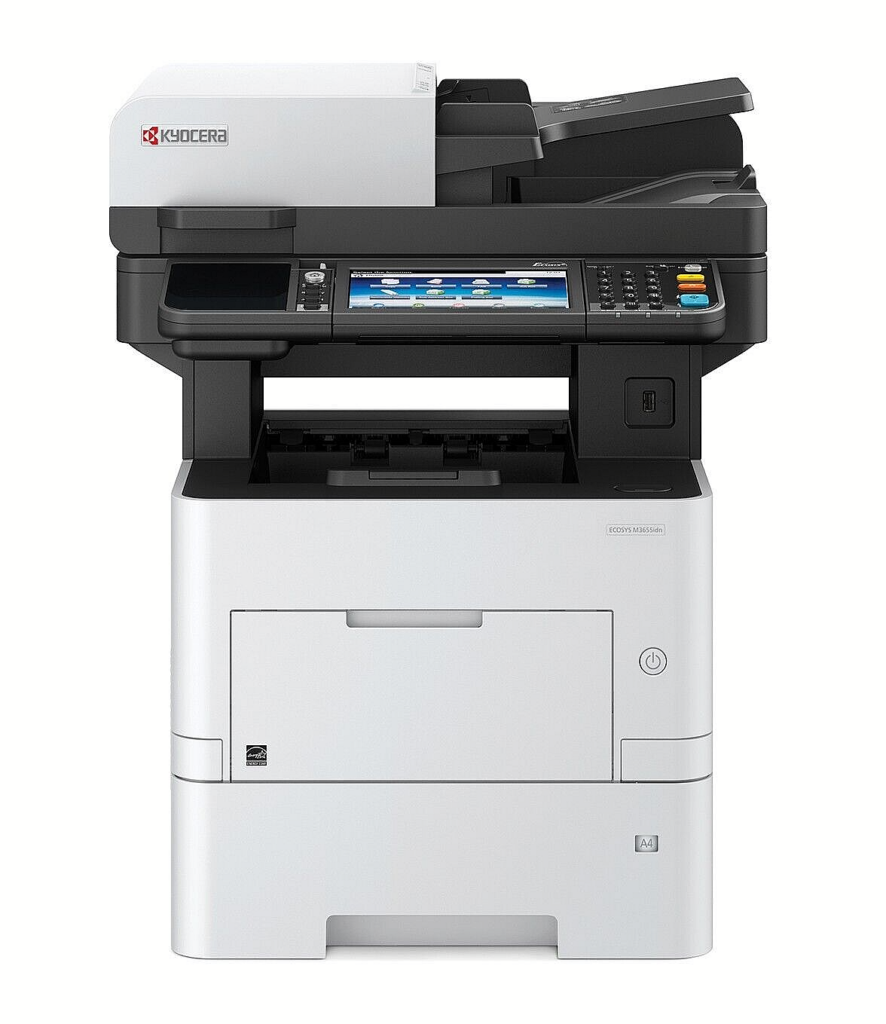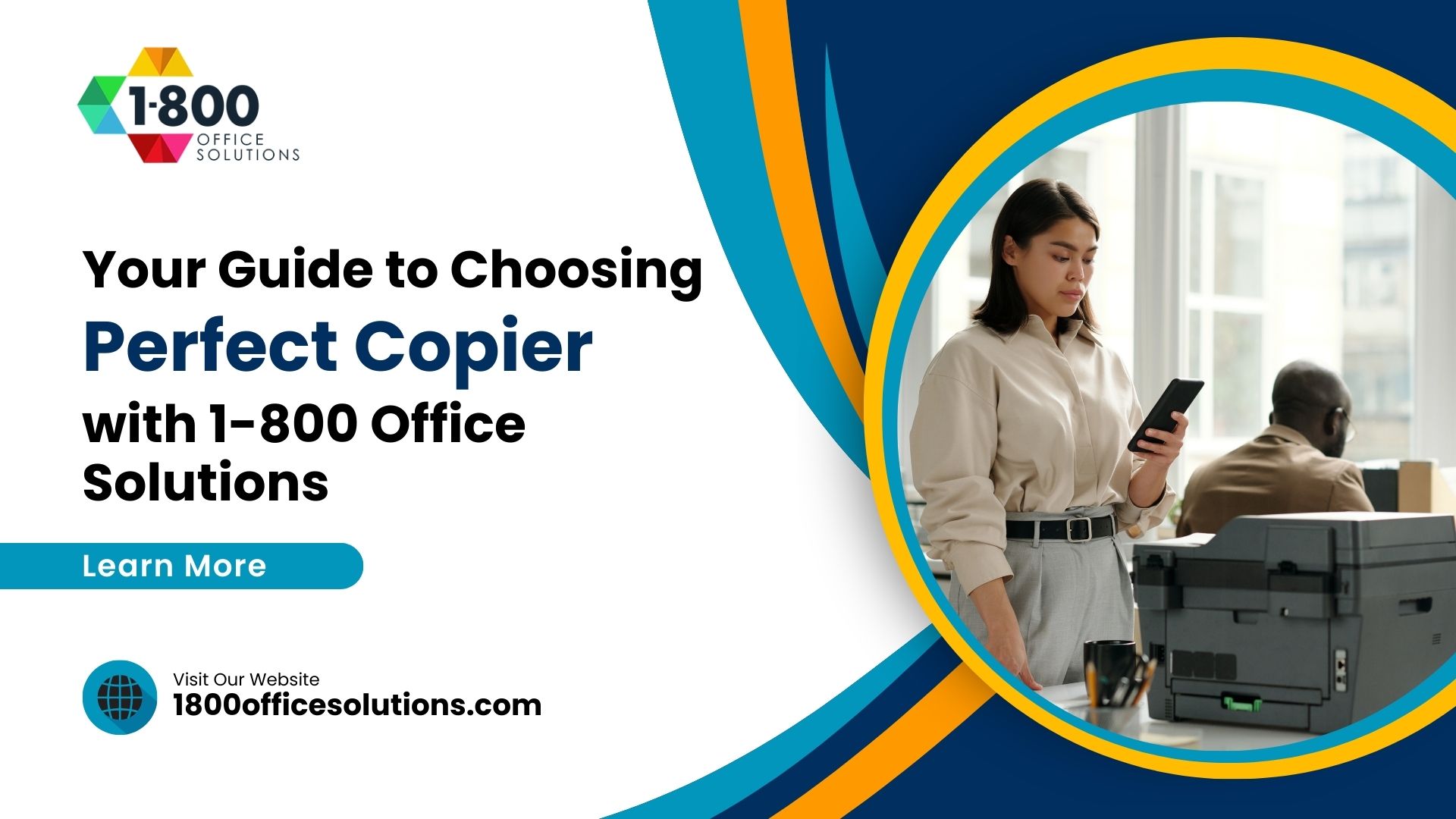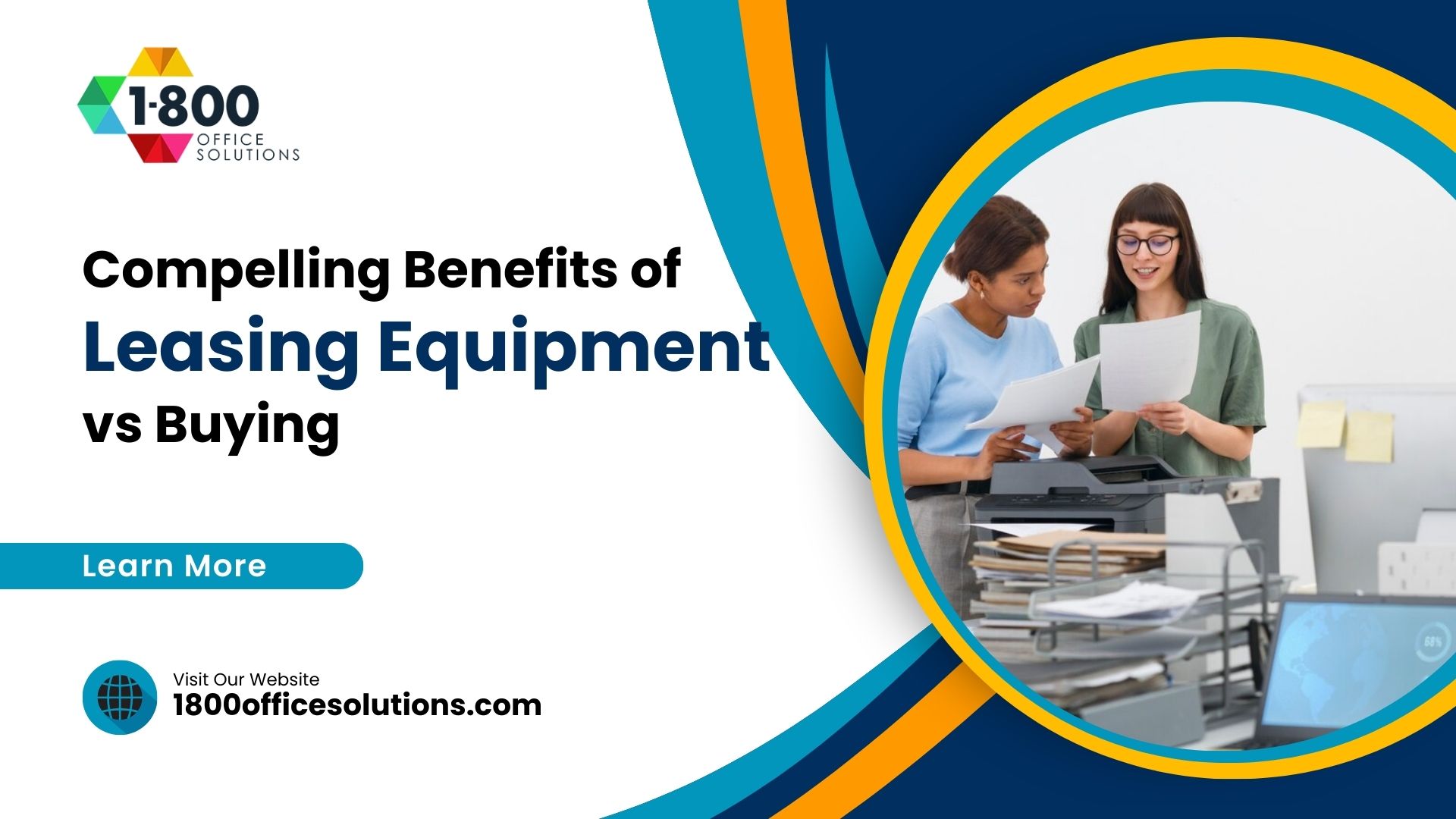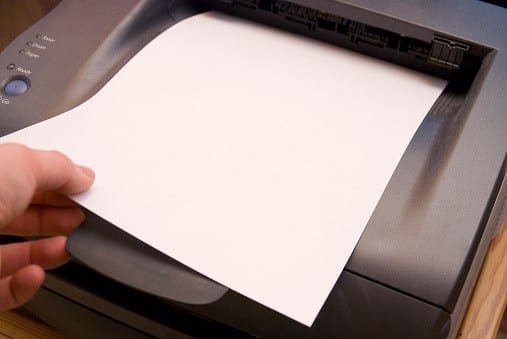Why Leasing a Copier in Florida Might be the Best Decision You Make This Year
Leasing a Copier in Florida
In today’s fast-paced business world, the importance of copiers cannot be overstated. They play a pivotal role in ensuring smooth operations, from reproducing documents to facilitating effective communication. However, a common dilemma many businesses face is the decision to buy or lease a copier.
Both options come with their own set of advantages and challenges. This article explains the leasing a copier in Florida, USA and how to decide, shedding light on the various aspects of copiers and their significance in the business.
What is a Copier?
A copier, often referred to as a printer or copy machine, is a device designed to reproduce documents and visual images swiftly and efficiently. The heart of modern copiers lies in the xerography technology, a dry process that employs electrostatic charges on a light-sensitive photoreceptor. This technology attracts and transfers toner particles onto paper, creating an image.
Types of Copiers
There’s a myriad of copiers available in the market, each tailored to meet specific business needs:
- Mono (Black & White): Ideal for basic document reproduction.
- Color: Best suited for presentations and marketing materials.
- Desktop: Compact and perfect for small office spaces.
- Office: Designed for larger workgroups with higher print volumes.
- Multifunction: Combines the functions of printers and copiers, often with scanning and faxing capabilities.
- A3 Copiers: Specialized for larger paper sizes.
- Digital: Offers connectivity features, including network and wireless printing.
- Network: Allows multiple users to connect and print from different workstations.
Business Needs for a Copier
When it comes to selecting a copier, understanding your business needs is paramount:
- Commercial vs. Personal Copier: While a personal copier might suffice for minimal daily tasks, commercial copiers are designed to handle bulk operations.
- Environmental Considerations: With growing concerns about global warming, it’s essential to consider the environmental impact of paper usage. Opting for features like duplex printing can significantly reduce paper wastage.
- Specific Requirements: Ensure the copier meets your business needs. For instance, if your business frequently conducts presentations, a color copier might be more apt than a mono one.
Buying a Copier in Florida
Purchasing a copier offers businesses complete control over the equipment. Some advantages include:
- Ownership and Control: No restrictions on usage or customization.
- Tax Benefits: The cost of the copier can be tax-deductible, offering financial relief.
- Depreciation: While copiers do depreciate over time, selling an old model can recoup some of the initial costs.
However, there are challenges to consider:
- Upfront Costs: Buying a copier requires a large upfront cost, which might strain a company’s cash flow.
- Technology Obsolescence: With rapid technological advancements, a purchased copier might become outdated within a few years.
Advantages and Disadvantages of Buying a Copier
Advantages:
- Financial Benefits: In the long run, buying might prove cheaper, especially when considering lease payments and interest rates.
- Tax Deductions: A significant portion of the copier’s cost can be written off as a business expense.
Disadvantages:
- Depreciation: The value of copiers diminishes over time, impacting resale value.
- Technology Obsolescence: The pace of technological innovation means that today’s latest copier might be outdated in a few years, potentially leading to higher per-page costs.
Leasing a Copier in Florida
In the Sunshine State, the trend of leasing an office copier is gaining traction among businesses. The primary reason? Flexibility. Unlike purchasing, leasing doesn’t require a hefty upfront cost. Instead, companies can maintain a steady cash flow with predictable monthly lease payments. The lease agreement typically outlines the terms and conditions, ensuring both parties are on the same page.
One of the standout benefits of leasing is the maintenance aspect. Most leasing companies offer comprehensive service agreements, ensuring the copier remains in optimal condition. This means businesses can focus on their core operations without fretting over potential copier malfunctions.
Advantages and Disadvantages of Leasing a Copier
In the modern business landscape, the decision to lease or buy office equipment, especially copiers, is a significant one. Both options come with their own set of benefits and drawbacks. Here, we delve deeper into the advantages and disadvantages of leasing a copier to help businesses make an informed choice.
Advantages:
- Financial Flexibility: One of the most compelling reasons businesses opt for leasing is the financial flexibility it offers. Instead of shelling out a substantial amount of money upfront to purchase a copier, companies can spread out the cost over several months or years. This approach provides better cash flow management and allows businesses to allocate funds to other pressing needs.
- Technology Upgrades: The tech industry is ever-evolving, with new advancements emerging rapidly. When you lease a copier, you aren’t tied down to outdated technology. Once your lease term concludes, you have the option to upgrade to the latest model, ensuring your business always benefits from the most recent and efficient features.
- Maintenance: The upkeep of office equipment can be a daunting task, both in terms of time and money. Most leasing agreements come with a comprehensive maintenance package. This means that if anything goes wrong with the equipment, the leasing company is responsible for repairs, saving businesses the headache of troubleshooting and additional costs.
Disadvantages:
- Interest Costs: While leasing offers the advantage of smaller, manageable payments, there’s a catch. Over the duration of the lease, the interest accrued might mean that the total amount paid exceeds the original price of the copier. It’s crucial for businesses to calculate these costs beforehand to determine if leasing is indeed the more economical option.
- Obligations: Leasing contracts come with their own set of obligations and terms. These contracts can be stringent, with clauses that might not always favor the lessee. For instance, terminating a lease prematurely could result in hefty penalties. Additionally, businesses might find themselves bound by usage restrictions or mandatory maintenance schedules.
While leasing a copier offers numerous benefits, especially for businesses that prioritize flexibility and up-to-date technology, it’s essential to be aware of the potential downsides. A thorough assessment of a company’s long-term needs, financial situation, and the terms of the lease agreement will pave the way for a decision that aligns with its best interests.
Factors Affecting the Cost of Leasing a Copier
When considering leasing a copier for your business, it’s essential to understand that the cost isn’t a one-size-fits-all figure. Multiple variables influence the final price you’ll pay, and understanding these can help you make an informed decision that aligns with your budget and needs. Here’s a deeper dive into the factors that play a pivotal role in determining the cost of leasing a copier:
- Black and White vs. Color: At the most basic level, copiers are categorized into black and white and color. While black and white copiers are generally more affordable, color copiers come with a steeper price. The reason? The intricacy of color printing and the associated costs of multiple color cartridges, which are often more expensive than their black and white counterparts.
- Print Speed: The speed at which a copier can produce pages directly impacts its lease cost. Businesses with substantial printing demands often opt for high-speed copiers, which, while more efficient, also come with a higher price tag.
- Functionality and Features: The more versatile a copier is, the more it’s likely to cost. Multifunction printers, which combine the capabilities of scanning, printing, and faxing into one machine, are particularly sought after for their convenience. However, this all-in-one functionality does elevate the lease price.
- Wireless Connectivity: In our increasingly connected world, the ability for a copier to connect wirelessly to various devices is a significant boon. This feature allows for more flexible printing options, especially in larger office spaces. But, as with most technological advancements, this convenience comes at a premium.
- Duplex Printing: An eco-friendly feature, duplex printing allows for printing on both sides of a paper. Not only does this save on paper costs in the long run, but it also promotes sustainability. However, the technology behind it can add a slight increase to the leasing cost.
- Network Printing: In larger offices where multiple employees need access to a single copier, network printing becomes essential. This feature lets users send print jobs from different workstations to one central copier. The convenience and efficiency of network printing make it a desirable feature, but it also contributes to a higher lease value.
While the base cost of leasing a copier might seem straightforward, the nuances of what you require from the machine can significantly influence the final amount. It’s always advisable to assess your specific needs and compare them against the features of the copier to ensure you’re getting the best value for your investment.
What People Also Ask
How does a copier lease work?
A copier lease is a contractual agreement between a business and a leasing company. The business agrees to make regular payments for the use of the copier over a specified period, typically ranging from 12 to 60 months.
What happens at the end of the lease period?
At the end of the lease, businesses have several options: return the copier, purchase it at its fair market value, or upgrade to a newer model by entering a new lease.
Can I terminate my lease early?
Terminating a lease early can result in penalties as outlined in the lease terms and conditions. It’s crucial to thoroughly understand your lease agreement before making such decisions.
What’s the difference between leasing and buying a copier?
Leasing allows businesses to use a copier for a specific period without owning it, while buying involves purchasing the copier outright. Each option has its pros and cons, depending on a company’s financial situation and needs.
Conclusion
In office equipment, the decision between leasing or buying, especially when it comes to a copier and printer, is a pivotal one that every business must grapple with. Both pathways come with their distinct advantages and challenges. On one hand, purchasing a copier offers the allure of ownership, potential tax benefits, and the absence of recurring monthly payments. It gives businesses full control over the equipment, allowing for customization and unrestricted usage.
On the other hand, leasing emerges as a flexible alternative, especially for businesses that prioritize staying updated with the latest technological advancements. With leasing, companies can easily upgrade to a new copier or even the latest Xerox model without the hassle of selling or disposing of the old equipment. The predictable monthly payment structure ensures that businesses can budget effectively without any sudden financial burdens. Moreover, the inclusion of managed print services in many lease agreements ensures that maintenance and repairs are taken care of, providing businesses with peace of mind.
Furthermore, the option of a buyout at the end of the lease term provides businesses with the flexibility to purchase the equipment if they find it indispensable to their operations. This hybrid approach allows companies to test the equipment during the lease period and make an informed decision later.
For businesses operating in Florida, where the business environment is dynamic and the technological landscape is constantly evolving, the scales might tip in favor of leasing this year. The combination of cost-effectiveness, access to cutting-edge technology, and the convenience of maintenance services makes leasing a particularly compelling choice for many enterprises. In the end, the best decision will always be the one that aligns with a company’s unique operational needs and financial health.












